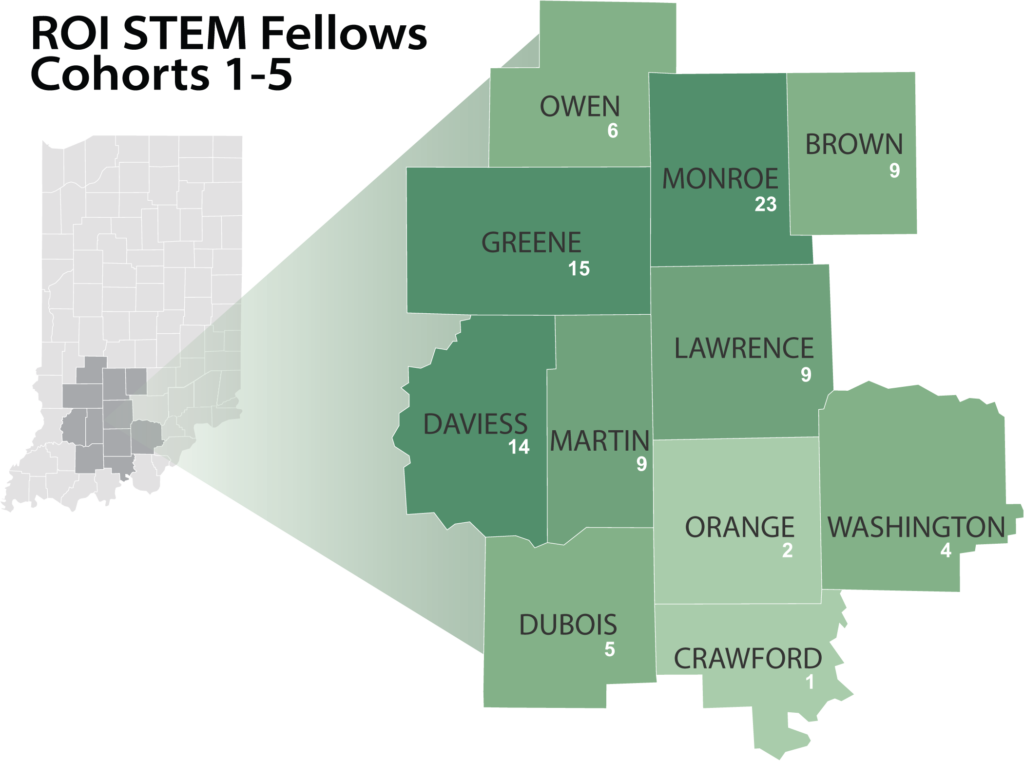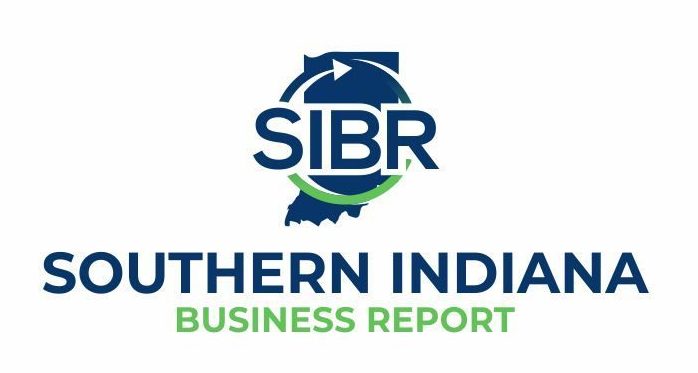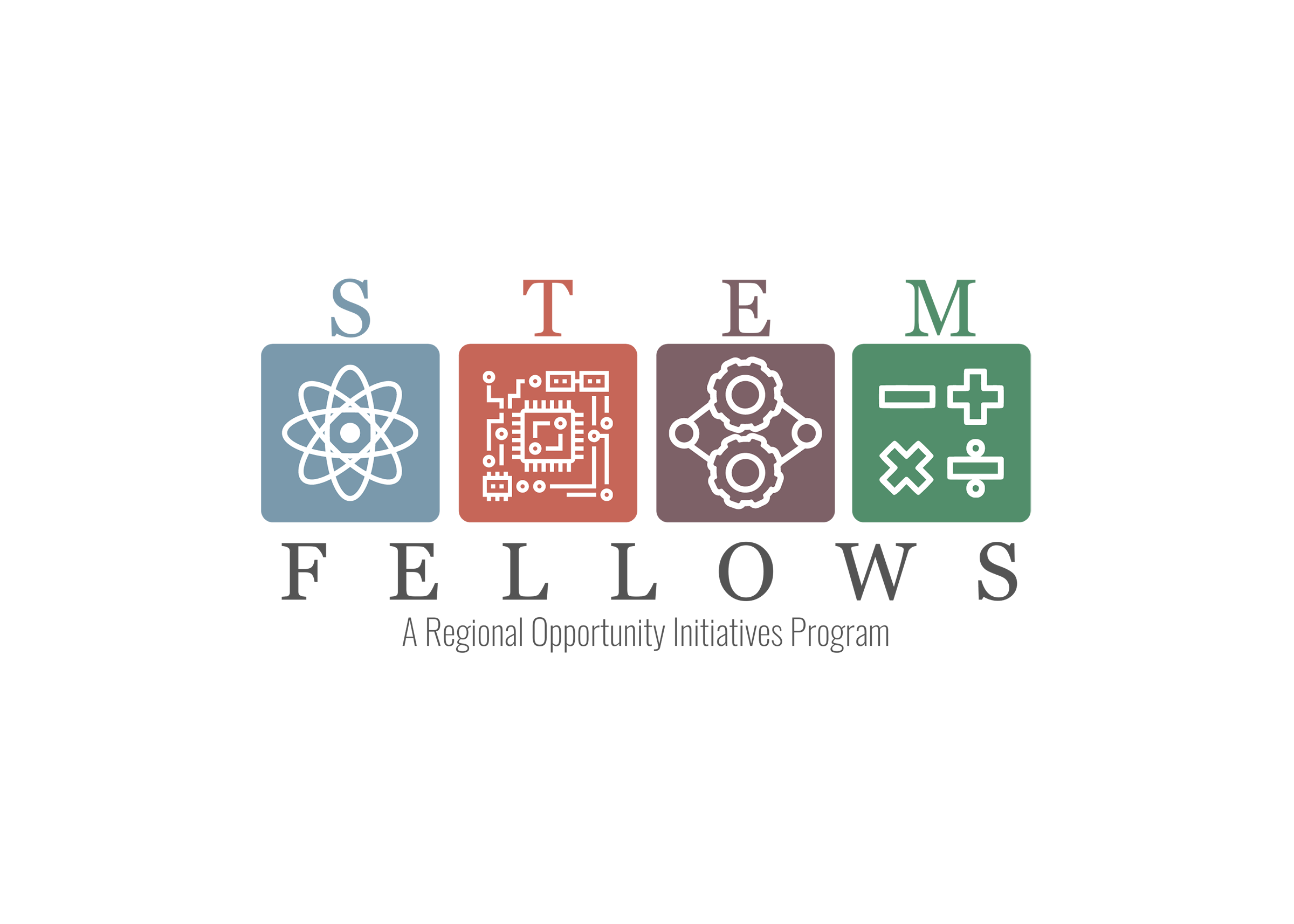Southern Indiana Business Report
BLOOMINGTON — Seventeen K-6 educators from around the region have been announced as the fifth cohort of the Regional Opportunity Initiatives STEM Fellows program. The educators chosen will begin their fellowship year in August, bringing to 97 the total number of program fellows working to advance science, technology, engineering, and mathematics activities in 23 of the 27 school districts in all 11 counties of the Indiana Uplands region.

“Early interventions in STEM learning are crucial to keeping students engaged in these fields through middle school and beyond,” said ROI Vice President of Talent Development Michi McClaine. “In the Indiana Uplands, there are abundant career opportunities in STEM fields, and our regional employers need a workforce ready to excel in technology-enabled environments, in engineering-related fields, and in the sciences. ROI’s STEM Fellows expose our region’s youngest learners to STEM exploration and regionally relevant career pathways that they can pursue beginning in elementary school and into post-secondary education and careers. Not only does this program benefit educators, students, and school districts, it also benefits our communities as we seek to grow our workforce and high opportunity industries in the Indiana Uplands.”
The 17 new members are: LuAnne Allen, White River Valley Elementary School, Greene County; Abby Brass, Childs Elementary School, Monroe County; Levi Clark, Gosport Elementary School, Owen County; Maggie Hamilton, Burris Elementary School, Lawrence County; Amy Hammond, Shakamak Elementary School, Greene County; Megan Hawkins, Shoals Elementary School, Martin County; Bridget Jeskewich, Eastern Greene Middle School, Greene County; Nickole Kay, Gosport Elementary School, Owen County; Sarah Knepp, Loogootee Middle School, Martin County; Tara Lengacher, Loogootee Elementary School; Morgan Lindquist, Linton-Stockton Elementary School, Greene County; Crystal McBride, North Daviess Elementary School, Daviess County; Chris Miller, Helmsburg Elementary School, Brown County; Pam Miller, Shakamak Elementary School, Greene County; Heather Montgomery, North Daviess Elementary School, Daviess County; Katelynn Schnell, Ferdinand Elementary School, Dubois County; and Kerri Winkler, Ferdinand Elementary School, Dubois County.
Fellows are nominated by their school principals and selected by ROI. Selected educators attend professional development events over the course of the fellowship year, serve as a STEMbassador to peers in the second year, and catalyze STEM growth within their school. Professional development activities are to designed to address a wide range of content, including project-based learning, the engineering design process, making and makerspaces, computational thinking and microelectronics, and making connections between language arts and STEM. At each professional development event, educators leave with new lesson plans and a better understanding of how to make connections to science, technology, engineering and math throughout the instructional day. Fellows receive a $2,500 stipend at the conclusion of the fellowship year and relevant supporting STEM resources and materials. Substitute teacher costs are also covered by ROI.
“To see these STEM Fellows grow as professionals over the past four years has been truly amazing,” added McClaine. “We have participants who are leading professional development, adding credentials to their licenses, and completing master’s degrees. The fellowship we envisioned to train teachers has grown into a program where dedicated educators are effecting change both in their own classrooms and by modeling for their peers. ROI’s STEM Fellows have become remarkable ambassadors for best practices.”
The STEM Fellows program was developed in response to the findings of ROI’s Occupational Needs Assessment, which emphasized the importance of having STEM-literate students to meet current and future workforce needs and provide a basis for continued economic growth and prosperity in the region. Throughout their fellowship, educators are encouraged to think deeper about STEM teaching and find ways to make meaningful connections between the content covered in class and future opportunities for their students. Fellows explore STEM content and topics related to the Uplands’ key industry sectors of defense, life sciences, and advanced manufacturing. Each fellowship development event includes participation from industry and sector partners and guidance on how to effectively integrate their expertise in ways that are age-appropriate for their students.



